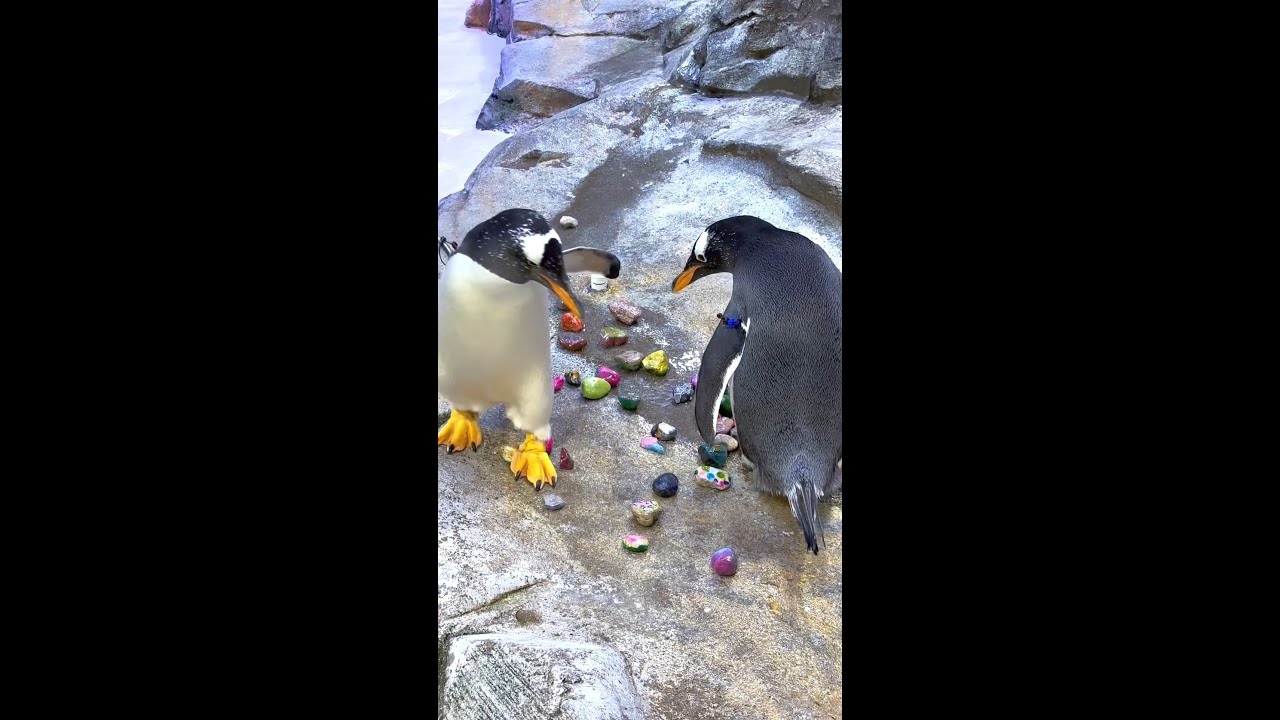– Enhancing penguin nesting behaviors at Detroit Zoo through painted rocks
– The impact of environmental enrichment on captive animal welfare
– The role of zoos in wildlife conservation and educational outreach
– Collaborative efforts between zoo management and conservationists to support biodiversity
Detroit Zoo has implemented an innovative approach to stimulate natural nesting behaviors in penguins by introducing painted rocks for the upcoming nesting season. This effort aligns with the zoo’s ongoing commitment to promoting species-specific behaviors through enriching habitats, thereby improving animal welfare within captive environments. By carefully selecting and painting these rocks, the zoo provides penguins with materials that mimic their natural nesting preferences, leading to behavioral and welfare benefits.
Penguins, particularly those species like the ones cared for at Detroit Zoo, rely on pebbles and small rocks to construct their nests. This activity is crucial for their breeding success and overall well-being. In the wild, penguins meticulously gather and select stones, engaging in a behavior that is instinctual and essential for protecting their eggs. Replicating this environment in captivity is challenging but crucial. The painted rocks introduced by Detroit Zoo are crafted to closely resemble those found in a penguin’s natural habitat, offering a practical solution to encourage these instinctual nesting behaviors.
Environmental enrichment is pivotal in modern zoo management and animal care practices. By providing animals with stimuli that encourage natural behaviors, zoos can significantly enhance their inhabitants’ physical and psychological well-being. This practice extends beyond merely furnishing habitats with objects; it involves deeply understanding an animal’s natural history and behaviors. For penguins at Detroit Zoo, the introduction of painted rocks for nesting caters to their physical need for nest-building and stimulates cognitive engagement and social interactions among the colony.
Zoos serve as crucial players in wildlife conservation, education, and research. Detroit Zoo showcases its dedication to these principles through initiatives like the painted rocks for penguins. This approach goes beyond the boundaries of traditional zookeeping, embodying a commitment to preserve biodiversity and fostering a connection between the public and wildlife conservation issues. Visitors to the zoo are treated to the sight of penguins engaging in natural behaviors and receive educational insights into the species’ life in the wild, the challenges they face, and the conservation efforts needed to protect them.
Collaborative efforts between zookeepers, conservationists, and researchers are essential to refine and implement successful enrichment and conservation strategies. Detroit Zoo’s venture into painted rocks for penguin nesting season is a testament to such collaborative work, marrying scientific research with practical application. Through partnerships with conservation organizations and engagement with the scientific community, zoos like Detroit can stay at the forefront of animal welfare and biodiversity conservation.
By embracing practices like providing painted rocks for penguins, Detroit Zoo enhances the quality of life of its captive animals and plays a pivotal role in conservation education. By fostering a deeper understanding and appreciation for wildlife, the zoo encourages the public to partake in conservation actions. The Painted Rocks initiative is a clear example of how zoos adapt to meet the needs of their animal residents while engaging the community in meaningful conservation discourse. Through initiatives like these, Detroit Zoo contributes significantly to the broader goals of wildlife conservation, educational outreach, and species survival.
*****
Source Description
🌈 Oh, what luck! 🌈
The penguins were gifted some “lucky charms” to give to their mates during nesting season! 🐧

